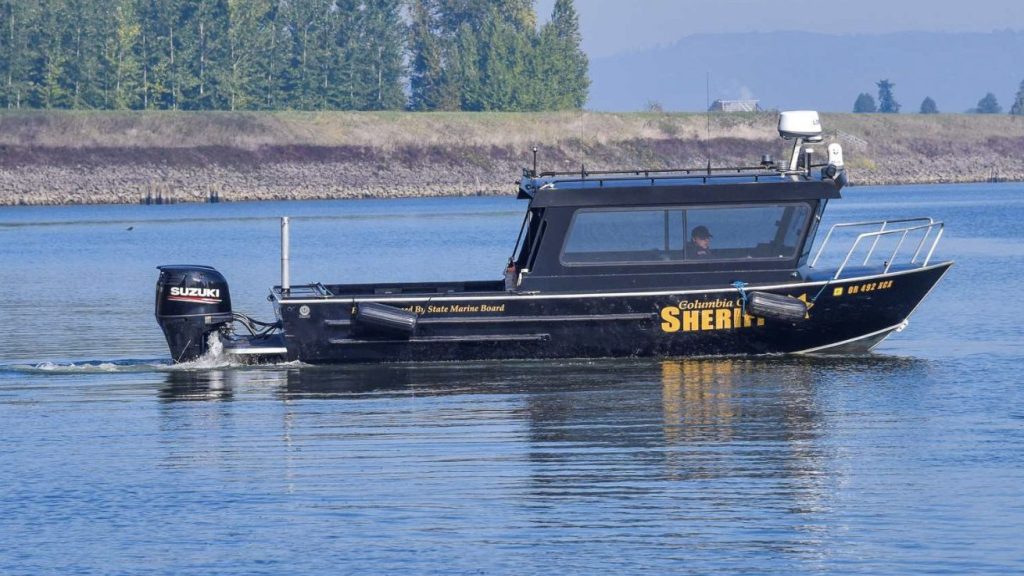Federal funds withheld over Oregon’s sanctuary status impact Columbia County marine patrol
Published 5:00 am Tuesday, July 1, 2025

- The Columbia County Sheriff's Office is planning to reduce coverage by its marine patrol program. (Submitted by the Columbia County Sheriff's Office)
Loss of federal funding to the Oregon State Marine Board because of the state’s sanctuary status will result in cuts to waterway patrols locally.
Columbia County Sheriff Brian Pixley, whose department oversees the formerly six-person staff of the marine patrol program, said the budget cuts will mean longer response times and less law enforcement coverage of local waterways.
“In Columbia County, the consequences are clear,” Pixley wrote in a letter to the community. “Due to these funding shortfalls, our marine patrol program will shift from a full-time to a seasonal schedule. This will likely lead to longer response times for calls on the water and will directly impact public safety for those who live, work and recreate along our waterways.”
Why did the Oregon State Marine Board lose federal funding?
The Oregon State Marine Board is primarily funded by user fees, gas tax revenues and federal grants, which the board uses to help fund marine law enforcement programs across the state and other water-related programs.
In an effort to pressure states into complying with federal immigration policies, the Trump administration has sought to withhold federal funding to sanctuary jurisdictions. As a result of Oregon’s status as a sanctuary state, the marine board will not receive a $2.2 million Recreational Boating Safety grant from the Department of Homeland Security and the U.S. Coast Guard.
To compensate for the loss, the board plans to decrease funds to local marine law enforcement programs by about 30% for the next two-year budget cycle.
In Columbia County, the cuts will mean a scaling back of the Columbia County Sheriff’s Office marine patrol program.
What is the marine patrol program?
The marine patrol program monitors boating safety by performing safety checks, watching for proper usage of life jackets and ensuring boat captains aren’t under the influence. Marine deputies also assist broken down vessels, respond to calls of people falling overboard and help in body recoveries.
In 2024, the county’s program recorded about 1,400 hours on the water and has responded to 213 calls in the last 12 months, which doesn’t include calls initiated by the deputies, Pixley said.
How will budget cuts impact the marine patrol program?
Due to the funding cuts, the program will operate with about $60,000 less each year. The program’s total budget for the 2025-27 biennium is $305,534 — a significant decrease from the current budget of $432,394 that will cause the program to scale back operations.
Previously, the budget supported one full-time marine patrol deputy and five part-time deputies who worked from late spring to early fall, Pixley said. In addition to salary and benefits for the deputies, the funds also covered boat maintenance and storage.
After the reductions, the budget won’t fully cover the cost of one marine deputy’s salary, retirement and benefits, Pixley said.
“As a result, there will be only one marine deputy who will be performing more shore patrol, which means he will monitor boats at marinas and boat docks and perform less on-water activities,” Pixley said. “It is not safe or practical to send a one-man boat out to perform a rescue or routine boat patrols.”
Pixley said he anticipates the reduction in staff and the shift to answering calls from the shore will result in longer response times.
“Columbia County has the largest stretch of the Columbia River in the state of Oregon at 62 miles of waterway,” Pixley said. “Our stretch runs from Multnomah County all the way to Clatsop County lines. Response times increase drastically when we do not have a boat on the water.”
In his letter to the community, Pixley criticized the state’s sanctuary policies and their local impact.
“It’s important to understand that these cuts are not the result of decisions made at the county level,” Pixley wrote. “They stem from broader state policies that carry federal consequences.”





